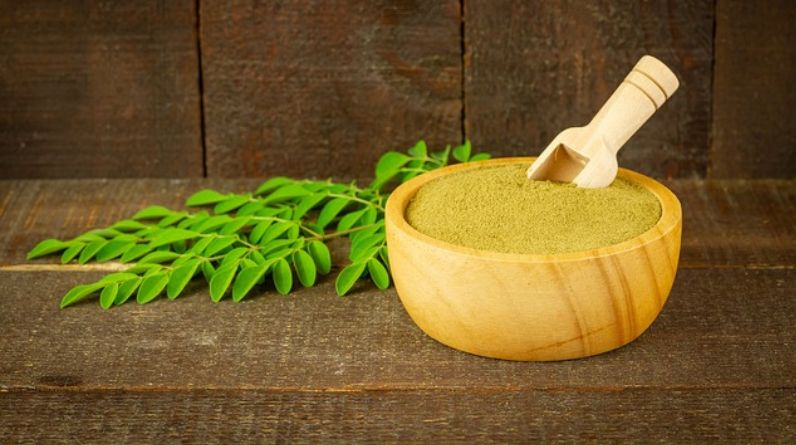
Nature’s Remedy for Tummy Troubles
The digestive system—a wondrous labyrinth of pipes and chambers responsible for turning your last meal into the energy that fuels your day. It’s like a well-oiled machine, until it isn’t. Enter the discomfort of indigestion, the agony of acid reflux, or the terror of tummy troubles. Whether it’s that extra spicy curry or a too-hasty gobbling of that ice cream cone, we’ve all been there. But fear not, because Mother Nature has a remedy up her sleeve: botanical supplements. These natural wonders are like the fairy godmothers of the digestive world, waving their herbal wands to restore order to your tumultuous tummy. So, let’s dive into the lush garden of botanical supplements and uncover the secrets to digestive harmony.
The Blooming World of Botanicals
Now, you might be wondering, what exactly are botanical supplements? Well, they’re nature’s little healers, often derived from plants like herbs, roots, leaves, and flowers. For centuries, different cultures across the globe have harnessed the power of botanicals to ease digestive discomfort. Whether it’s the soothing minty freshness of peppermint or the gentle embrace of chamomile, these plants have a long history of aiding digestion. But before we embark on this digestive adventure, a word of caution: while botanical supplements can be highly effective, it’s wise to consult your healthcare provider before adding them to your wellness routine, especially if you have underlying health conditions or are taking medications.
The Herbal Symphony of Digestive Health
1. Peppermint (Mentha × Piperita)
Peppermint isn’t just for freshening your breath; it’s a digestive superhero too. Its active ingredient, menthol, helps relax the muscles of the gastrointestinal tract, reducing spasms and promoting smoother digestion. Whether sipped as a tea or taken in capsule form, peppermint can bring sweet relief to those with irritable bowels or indigestion.
2. Ginger (Zingiber officinale)
Ginger has a fiery reputation for soothing digestive discomfort. It helps relax the muscles of the gut and can be particularly helpful for nausea, motion sickness, and morning sickness during pregnancy. A warm cup of ginger tea or a ginger supplement can work wonders when your stomach’s doing somersaults.
3. Chamomile (Matricaria chamomilla)
Chamomile, with its delicate daisy-like flowers, is the ultimate herbal hug for your tummy. It boasts anti-inflammatory properties and can ease indigestion, bloating, and gas. Sip on a cup of chamomile tea after a meal, and you’ll feel the tranquility wash over your digestive system.
4. Fennel (Foeniculum vulgare)
Fennel is like a magical digestive wand. Its aromatic seeds can help relax the smooth muscles of the gastrointestinal tract, reducing bloating and cramps. Chewing fennel seeds post-dinner can be a delightful and effective way to aid digestion.
5. Turmeric (Curcuma longa)
Turmeric, the golden spice of India, is celebrated for its anti-inflammatory and antioxidant properties. It can be beneficial for individuals with conditions like irritable bowel syndrome (IBS) or inflammatory bowel disease (IBD). While it’s often used in cooking, turmeric supplements standardized for curcumin content are available for more concentrated benefits.
6. Dandelion (Taraxacum officinale)
Dandelion, often regarded as a pesky weed, actually offers a wealth of health benefits. It supports liver function, which plays a crucial role in digestion. By aiding the liver, dandelion can indirectly promote better digestion and alleviate mild digestive discomfort.
Conclusion
In the world of wellness, where we often seek relief in nature’s embrace, botanical supplements shine as nature’s remedy for tummy troubles. From the soothing minty freshness of peppermint to the warming comfort of ginger, these gifts from the earth have provided solace for generations.
Remember, when it comes to your digestive health, it’s not just about seeking quick fixes but also nurturing lasting well-being. Botanical supplements can play a vital role in this journey, offering relief and support. However, they work best as part of a holistic approach that includes a mindful diet, regular exercise, and stress management.
So, embrace the wisdom of nature, and let botanical supplements join your digestive wellness team. With their gentle yet powerful touch, they can help you savor every bite and relish the journey of a healthy, happy belly. Here’s to vibrant digestive health and the bountiful gifts of the natural world!
Frequently Asked Questions
1. Can botanical supplements really help with digestive problems?
Absolutely! Botanical supplements, derived from various plants, have a rich history of aiding digestion and are supported by scientific research. For instance, peppermint has been shown to alleviate symptoms of irritable bowel syndrome (IBS), while ginger can reduce nausea and vomiting. The compounds within these plants interact with your body to support smoother digestion and relieve discomfort.
2. Are botanical supplements safe to use for digestive issues?
In most cases, botanical supplements are safe when used as directed. However, it’s crucial to consult with a healthcare provider before incorporating them into your regimen. Some botanicals can interact with medications or exacerbate certain health conditions. This precaution ensures that you choose the right supplements and use them safely for your specific needs.
3. Can I use botanical supplements to prevent digestive issues?
Indeed, you can! Botanical supplements can be a proactive part of your digestive health strategy. While they can help alleviate existing issues, they can also contribute to maintaining a healthy digestive system. But remember, they work best when combined with a balanced diet and an overall healthy lifestyle. Think of them as digestive allies, not a replacement for good habits.
4. Is there a specific botanical supplement for heartburn or acid reflux?
Certainly! Ginger and peppermint supplements are often recommended for individuals dealing with heartburn or acid reflux. Ginger’s anti-inflammatory properties can soothe the esophagus and reduce discomfort. Peppermint, on the other hand, helps relax the lower esophageal sphincter, preventing stomach acid from flowing back into the esophagus.
5. Can botanical supplements be taken with other medications?
While botanical supplements are generally safe, it’s essential to discuss their use with your healthcare provider if you’re taking other medications. Some supplements can interact with prescription drugs, altering their effectiveness or causing unintended side effects. Your healthcare provider can provide guidance on safe combinations.
6. Are there any side effects associated with botanical supplements for digestion?
While botanical supplements are well-tolerated by many, they may cause side effects in some individuals. Allergic reactions or gastrointestinal upset are possible, although relatively rare. Pay attention to your body’s response when starting a new supplement, and consult a healthcare provider if you experience adverse effects.
7. How quickly can I expect relief from botanical supplements for digestion?
The timeline for relief can vary widely depending on the supplement, your specific digestive issue, and your body’s response. Some people experience rapid relief within hours, while others may require a few days to notice improvements. Consistency in use is often key to achieving and maintaining the desired effects.
8. Can I use botanical supplements if I have a sensitive stomach?
Absolutely. Many botanical supplements are gentle on the stomach and can actually help soothe sensitivity. Chamomile, for instance, is renowned for its calming effect on the digestive system and can be particularly helpful for those with sensitive stomachs. However, individual responses can vary, so it’s wise to start with a lower dosage if you’re concerned.
9. Are botanical supplements suitable for children with digestive issues?
Botanical supplements can potentially benefit children with digestive problems, but it’s essential to exercise caution and consult with a pediatrician. Children’s bodies can react differently to supplements than adults, so expert guidance is crucial to ensure safety and efficacy.
10. Can I take multiple botanical supplements for digestion together?
Combining botanical supplements can be effective for addressing multiple aspects of digestive health. However, it’s vital to approach this with care. Consult a healthcare provider or a qualified herbalist to determine which combinations are safe and appropriate for your specific needs. They can help you create a tailored regimen that optimizes your digestive well-being.





